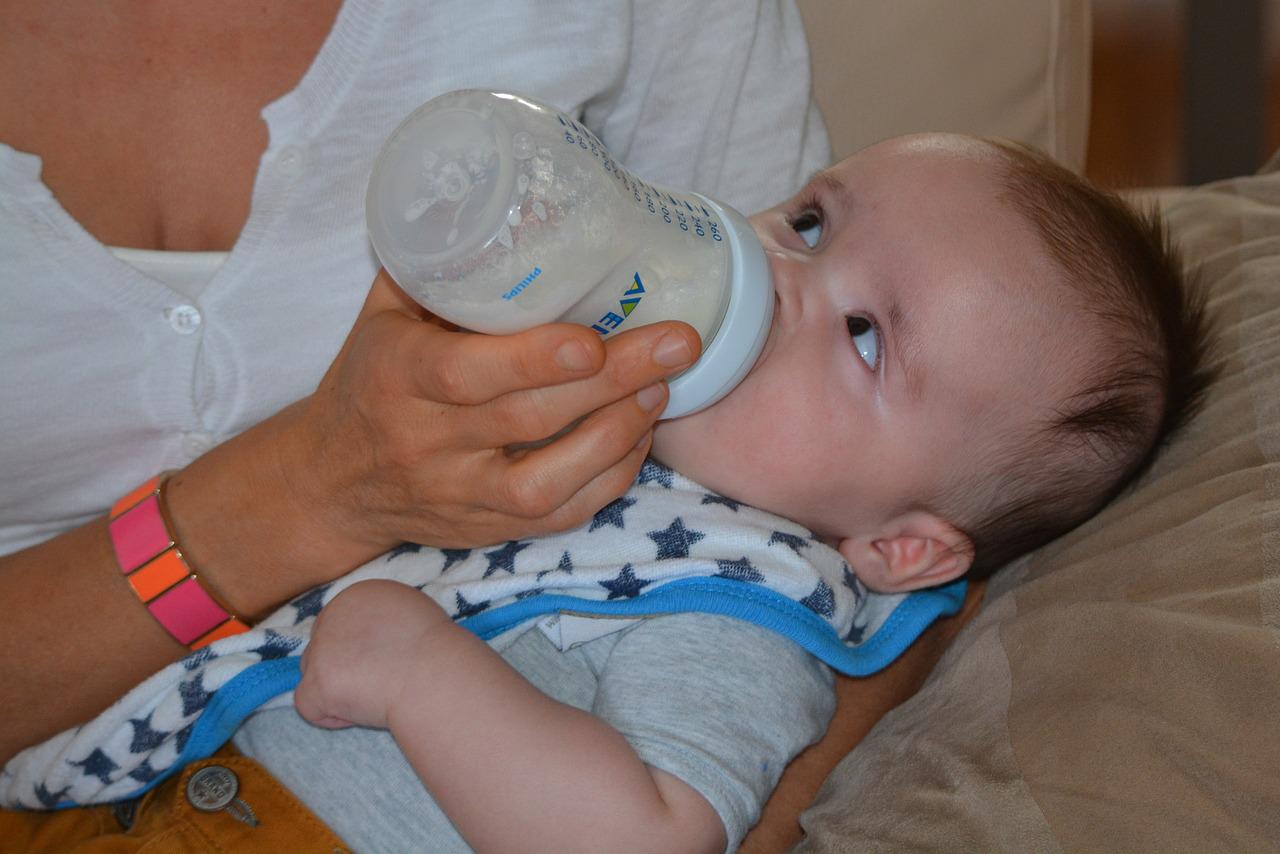Can Babies Choke on Milk: Choking First Aid and Prevention
Accidents are a part of life. Many unexpected things can happen at home, at work, or on the road. One of the many accidents that your family might encounter is choking.
Choking is a medical emergency when something blocks a person’s airway. If a foreign object, like food, gets stuck in the throat, it will be hard for the person to breathe properly. Sometimes, a person can easily cough out the object, but complete blockage can lead to fatality.
Like adults, babies can also experience choking. And for parents, it’s up to them to rescue their child. But how do you determine if a child is choking, and how do you help them out?
Can Babies Choke on Milk?
Choking can happen to anybody, including babies. In the US, 75% of choking accidents affect children ages 3 and under. For infants and toddlers, it’s the leading cause of death.
Babies can choke on many things, from small toys to solid food. But for small infants who are too young for toys and food, they have the risk of choking on their mother’s milk.
Babies can choke on milk while nursing. Choking can happen whether they’re breastfeeding or bottle-feeding.
Infants can choke on milk for different reasons. These include:
Your Child is Developing Their Gag Reflexes
Babies are growing every day, so it’s expected that they haven’t mastered many things in life just yet. So when it comes to nursing, you might expect a lot of gagging, spitting, and choking.
Babies are born with hyper-gag reflexes. Sometimes, these reflexes make your child choke on their milk.
We’ll talk more about the signs of choking. But if your infant can cough out the milk and make sound, there’s nothing to be worried about. A pat on the back and a change of feeding position can immensely help.
You Have Overactive Letdown
Producing tons of breast milk sounds like a blessing for some mothers. But an overactive letdown can lead to choking in some instances.
Letdown is when milk flows out of the breasts. It is a reflex brought by stimulating hormones, and it can be triggered by many things, including your baby’s suckling. However, overactive letdown can lead to too much breast milk, overwhelming your infant.
If you have an overactive letdown, there are some strategies on how you can feed your infant without worries. Fixing your baby’s latch, changing position, and feeding on one breast at a time are tips that can help mothers with too much breast milk.
You Feed Your Infant Through Bottle Propping
Have you ever experienced needing to use the bathroom or answer the door while nursing? Bottle-feeding mothers might find it tempting to leave the baby with their bottle for just one minute. But bottle propping-the practice of leaving a baby with a bottle propped next to them-is dangerous and can lead to accidents.
Babies aren’t equipped with the coordination to stop the flow of milk with their mouths or hands. Some bottles will continue pushing out milk even when it’s not sucked. Furthermore, leaving your infant lying on their back while nursing unattended can heighten the risk of milk flowing into the windpipe.
Bottle propping is risky, and you should never leave your infant alone with a bottle, even for a moment. Always feed your infant with their head tilted up and with the right teat. And if you do have to go, always make sure that another responsible adult can feed and keep watch of junior.
What are The Signs of Choking in Babies?
For unknowledgeable eyes, choking and gagging might appear like the same thing. However, gagging is a temporary issue, and it usually ends with your child spitting and coughing out their milk.
However, choking is a life-threatening situation that requires immediate medical attention. Signs to look out for include:
- Your baby’s face turns blue.
- Your baby can’t cry out and make noise.
- Your baby will have a look of panic and may wave their arms for help.
- Your baby has a hard time breathing.
- Your baby loses consciousness.
If your baby is choking, immediately call paramedics at your location. If you’re trained, quickly administer first aid. This video by the British Red Cross can guide you on what to do when an infant is choking.
Avoid trying to push your finger inside your child’s mouth. You should only administer first aid if your infant’s airway is completely blocked. And most important of all, stay calm to avoid making mistakes.
How Do I Prevent Choking in The Future?
Accidents are unpredictable and can happen when you least expect them. However, there are ways to mitigate them before they occur.
Always keep an eye on your infant while nursing them. If you notice them clamping down on the nipple or pulling away frequently, it’s time to slow down their feeding.
If you’re pushing out too much breast milk, try feeding your infant through one breast at a time to avoid overfeeding. Block feeding can help lower your milk production and the risk of choking.
You should never leave your infant alone or unsupervised while feeding. Always keep an eye on them, whether they’re breastfeeding or bottle-feeding. In case there’s an emergency, always ask for the help of a watchful adult.
Finally, you can experiment on which position is most comfortable for you and your tot. Make sure your infant’s head and body are always supported while nursing. You should also watch out for their latch so they can get ample breast milk every time.
Choking is a scary experience, but it’s also a preventable one. With a keen and attentive eye, you can easily spot whether your baby is nursing comfortably or not.
FAQ:
Why is choking so deadly among babies?
Choking can block the airway, making it impossible for babies to breathe.
What are the differences between gagging and choking?
Gagging is temporary and generally harmless, and your infant can cough, make sound, and not appear distraught. Meanwhile, choking is dangerous and causes the infant to go blue, go quiet, and look terrified.
Can I do first aid on my baby?
Anybody can administer first aid, as long as they’re well-trained and knowledgeable.
Conclusion
Parenthood can be a very tense-filled experience for many mothers and fathers. Many things can go wrong, especially when you least expect them. A choking infant is one of the many nightmares parents dread having.
Fortunately, you still have time to act if this happens. Recognizing the first signs of choking is crucial in saving your child’s life.
But above all, actively avoiding choking is a must so that an accident won’t happen in the first place. You know the motto: prevention is always better than cure. There’s no need to be overprotective, but being vigilant will go a long way.










